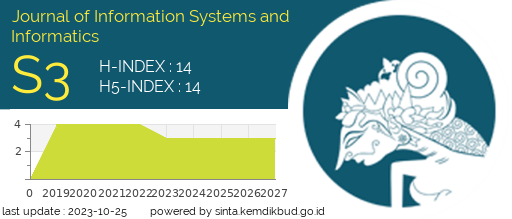The Future of Work: Digitalisation of Sub-Saharan Africa Labour Markets
Abstract
Digital transformation is reshaping global operations by integrating technology into business, fundamentally changing how value is delivered. In Sub-Saharan Africa, this shift is altering work processes and job content, impacting the demand for skills and leading to the displacement of certain roles across all industries. Understanding the effects of digital technologies on the future of work in the region is essential for developing effective strategies. It is important to recognise how these changes will affect labour markets and workers' ability to transition to new opportunities. While technology can create new paths and improve access, it also exacerbates existing inequalities. This study aimed to explore the challenges shaping the future of work in Sub-Saharan Africa. A qualitative research approach and inductive thematic analysis were utilised for this study. The findings highlight that the major challenges affecting the future of work are digital skills, followed by Diversity, equity and inclusion- digital divide, gender inequality and discrimination and lack of DEI initiatives and finally, workforce- unemployment and inadequately skilled workforce. In conclusion, while the future of work in Africa presents significant challenges, it also offers great promise. Realising this potential depends on bold and proactive decisions by policymakers, educational institutions, and businesses. Strategic investments made today can empower the next generation of African workers, innovators, and entrepreneurs to thrive in an increasingly digital and competitive global economy.
Downloads
References
World Economic Forum, Future of Jobs Insight Report, Geneva, 2023.
D. Mhlanga, “Empowering African women through Industry 4.0 in the 21st century,” 2024.
A. Chibo-Christopher, “Digital transformation and the future of work and business in Africa,” 2023.
E. Omol, L. Mburu, and P. Abuonji, “Pioneering digital transformation in Africa: The path to maturity amidst unique challenges and opportunities,” Can. J. Bus. Inf. Stud., vol. 6, no. 2, pp. 35-48, 2024.
S. B. M. Ibrahim, M. A. Johanis, N. H. H. Sultan, and S. N. M. Basir, “Gender equality in the higher education workforce,” South Asian J. Soc. Stud. Econ., vol. 21, no. 8, pp. 107-117, 2024.
N. Ruggiano and T. E. Perry, “Conducting secondary analysis of qualitative data: Should we, can we, and how?” Qual. Soc. Work, vol. 18, no. 1, pp. 81-97, 2019.
S. S. Babalola and C. A. Genga, “Managing digital transformation in African higher education institutions: Challenges and opportunities,” Int. J. E-Learn. Distance Educ., vol. 39, no. 1, 2024.
A. Ismail, H. L. Truong, and W. Kastner, “Manufacturing process data analysis pipelines: A requirements analysis and survey,” J. Big Data, vol. 6, no. 1, 2019.
V. Braun and V. Clarke, “Using thematic analysis in psychology,” Qual. Res. Psychol., vol. 3, pp. 77-101, 2006.
K. A. Neuendorf, “Content analysis and thematic analysis,” in Adv. Res. Methods Appl. Psychol.: Design, Anal. and Rep., P. Brough, Ed., pp. 211-223, 2019.
S. H. Batool, A. F. Ali, and M. Safdar, “What Pakistani doctoral students want? A qualitative exploration of their research experiences,” Glob. Knowl. Mem. Commun., vol. 71, no. 4/5, pp. 355-369, 2022.
T. Begazo, M. Blimpo, and M. Dutz, Digital Africa: Technological Transformation for Jobs, World Bank Publications, 2023.
World Bank, Future of Work in Africa, The World Bank, 2020.
J. Choi, M. A. Dutz, and Z. Usman, The Future of Work in Africa: Harnessing the Potential of Digital Technologies for All, The World Bank Publications, Washington, DC, 2020.
International Labour Organisation, Work for a Brighter Future - Global Commission on the Future of Work, 2019.
T. Adedokun, “The Diversity, Equity and Inclusion Question in Africa’s Burgeoning Tech Ecosystem,” Techcabal, 2022.
UNDESA, World Population Prospects, Population Division, Department of Economic and Social Affairs, New York, NY, USA, 2022.
African Economic Outlook, Developing Africa’s Workforce for the Future, African Development Bank Group, Abidjan, Côte d’Ivoire, 2020.
V. Ranchhod, A. David, D. K. Manda, C. Poggi, C. Zanuso, and R. Yasser, “Labour market inequalities,” Inequalities in Sub-Saharan Africa, pp. 57, 2025.
AfDB, ADB, EBRD, and IADB, “The Future of Work: Regional Perspectives,” Washington, DC: AfDB, ADB, EBRD, and IADB, 2018.
J . Alakali, “Addressing the challenges of digital transformation in African businesses,” J. Hum. Manag. Soc. Sci. Res., vol. 1, no. 1, pp. 22-28, 2019.
World Bank, World Development Report 2020: Trading for Development in the Age of Global Value Chains, The World Bank, 2019.
I. A. Abdulqadir and S. A. Asongu, “The asymmetric effect of internet access on economic growth in Sub-Saharan Africa,” Econ. Anal. Policy, vol. 73, pp. 44-61, 2022.
World Bank, “Excerpt from Digital Transformation Drives Development in Africa,” The World Bank, 2024.
 Abstract views: 38 times
Abstract views: 38 times Download PDF: 24 times
Download PDF: 24 times
Copyright (c) 2025 Journal of Information Systems and Informatics

This work is licensed under a Creative Commons Attribution 4.0 International License.
- I certify that I have read, understand and agreed to the Journal of Information Systems and Informatics (Journal-ISI) submission guidelines, policies and submission declaration. Submission already using the provided template.
- I certify that all authors have approved the publication of this and there is no conflict of interest.
- I confirm that the manuscript is the authors' original work and the manuscript has not received prior publication and is not under consideration for publication elsewhere and has not been previously published.
- I confirm that all authors listed on the title page have contributed significantly to the work, have read the manuscript, attest to the validity and legitimacy of the data and its interpretation, and agree to its submission.
- I confirm that the paper now submitted is not copied or plagiarized version of some other published work.
- I declare that I shall not submit the paper for publication in any other Journal or Magazine till the decision is made by journal editors.
- If the paper is finally accepted by the journal for publication, I confirm that I will either publish the paper immediately or withdraw it according to withdrawal policies
- I Agree that the paper published by this journal, I transfer copyright or assign exclusive rights to the publisher (including commercial rights)






















_1.png)












